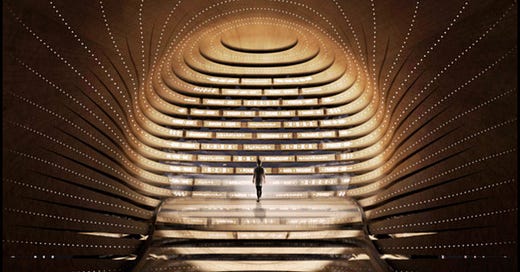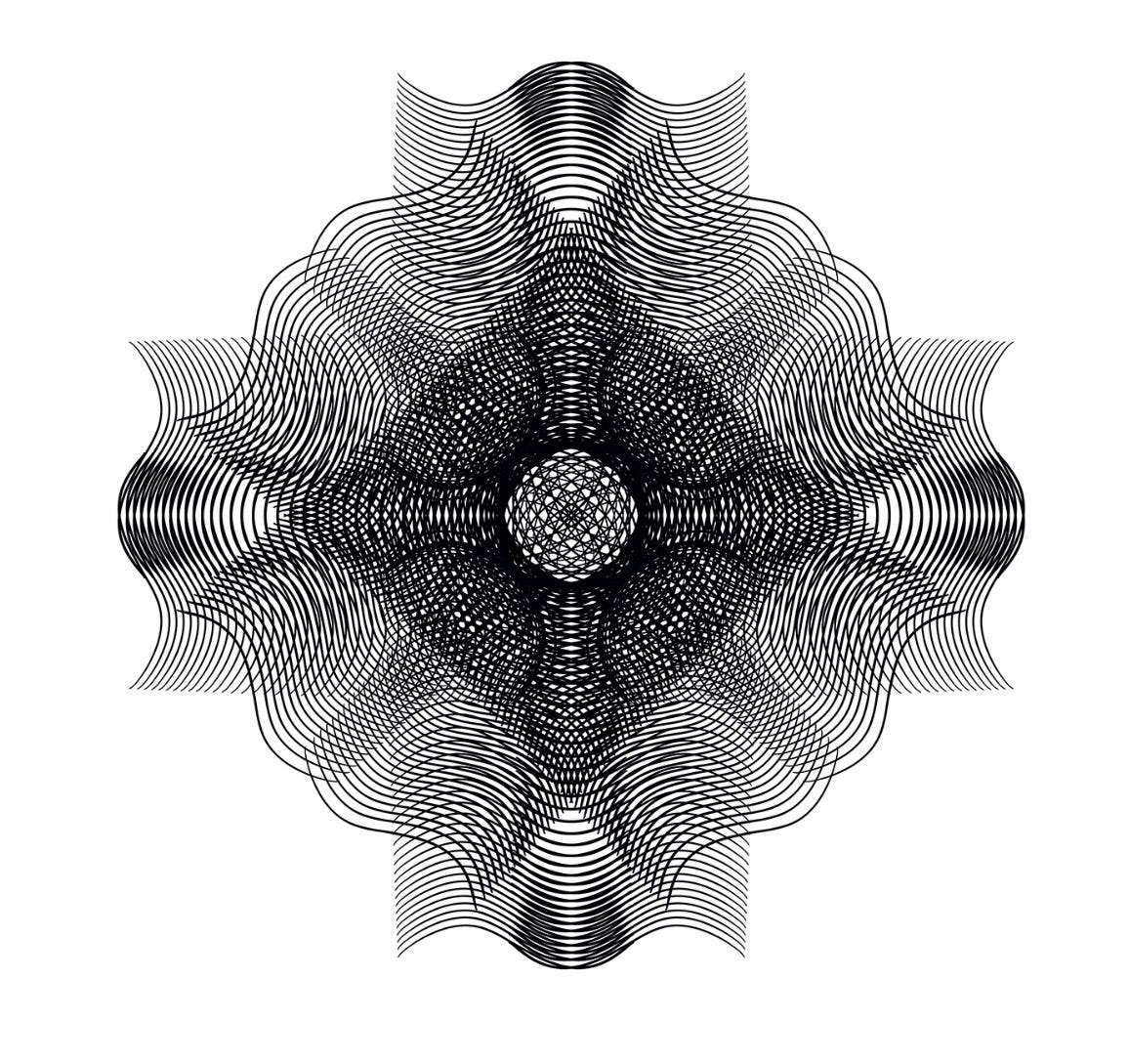Why resonance is the key to connection
Rethinking Resonance: Exploring the connection between acceleration, disconnection and resonance
Dear Rethinkers,
What makes something resonate with you? It could be a book, a song, a film, or even a place. I've long been fascinated by the concept of resonance. If you’ve ever seen an opera singer shatter a glass with their voice (I have, once!), that's resonance. Or less extreme is that feeling of reverberation you get when you bang a drum or pluck a guitar string. Resonance underlies many aspects of our lives, including music, dying stars and viral videos.
I've realised that resonance is a powerful way to think differently about receptivity and responses – to an idea, a political message, or an image.
Why do some ideas and moments seem like an echo and leave a long-lasting trace?
And why do some people have an infectious reverberation, for better or worse?
Resonance manifests itself in such varied settings in our lives: art and culture are shaped by images, words and sounds resonating with us; politics by the opinions, policies, biases and world views that have resonance; our social media feeds are full of the content and personas resonating with millions of swipes (and algorithms); and brands, in many ways, are consumer culture promises of resonance.
So, what does it mean to live in resonance with the world, ourselves and other people? And why could answering this question help us address feeling disconnected? Whether that is to our workplaces, the environment, democracy or each other.
Tuning into a 'natural' frequency
The word 'resonance' originated in music and acoustics. Its Latin root, resonare, means "to make a prolonged sound together." The phrase "we're on the same wavelength" is more than just a friendly saying. It's getting to this idea of frequencies aligning. And that's at the root of resonance.
I love this idea of objects and places having their own "natural" oscillating frequency. If you tune into that frequency, it creates an exchange of energy.
Es Devlin, designer extraordinaire, puts it beautifully:
"Resonance in human communication relies on precisely attuning to the wavelength of your audience."
This sometimes happens when I'm on stage giving a talk. It's like an invisible pathway of emotion and meaning connecting me with the audience. But it only happens sometimes. And when the resonance is missing, I feel a disconnect between myself and the audience; I can sense the distance. Without resonance, the stage is a lonely place; with resonance, it's an energy field.
That's why the opposite of resonance is alienation.
Why does the accelerated rate of our lives get in the way of resonance?
This thought brought me to the work of the German sociologist Hartmut Rosa. I'm guessing you've never heard of him. Still, he's responsible for reframing resonance as a concept in sociology, not just science and the arts.
"If acceleration is the problem, then resonance might be the solution." - Hartmut Rosa
This is the shortest possible summary provided in the first line of Rosa's 800-page book called Resonance. Bear with me whilst I join the dots between acceleration, disconnection and resonance.
Rosa writes about three dimensions of acceleration we're experiencing in our lives:
Acceleration of technology
Acceleration of social change
Acceleration of the pace of life
All this acceleration creates the constant pressure of doing more in less time. However, according to Rosa, it also produces a "loss of control over our own life and the world." We lose a deep and vital sense of resonance in our lives.
Four essential types of resonance
Rosa frames four types of resonance that are key to living healthy, fulfilling and connected lives:
Horizontal resonances occur between two (or more) people, including love and friendships.
Diagonal resonance is our relationship to the world of things, such as our clothes.
Vertical resonance relates to more abstract concepts such as history, art or religion.
The fourth (recently added) is our relation to self, including our body and mind.
The problem is that so much of Western Culture frames emotions as private events – through the lens of number four above (i.e. how "I'm feeling") - but resonance is not a one-sided thing. It's not an echo of our thoughts.
Resonance is a responsive relationship reverberating between and among people and places.
This week's newsletter is a bit different, but I want to share concepts I'm exploring and discovering with you. I hope you enjoy me giving you a window into joining the dots.
Qu for you: When or where have you experienced resonance recently? Please leave your thoughts in the comments below.
Warmly,








I love this association of resonance and connection and the 4 types of resonance given through Rosa's research (new to me). Recently I experienced resonance discussing the book "THe Fourth Turning is Here" by Neil Howe. His work showcases patterns of histories and different generations reactions to these seasons of change. While discussing it and reading it, the repetitive pattern of what's happening today - the disconnect we all feel and other underlying emotions - while it makes me so incredibly uncomfortable - provides a sense of solace and clarity as to the why we feel this way.
Here is my example of resonance from this weekend. We were on the way to a concert. On the way I asked my wife, "One of your coursin John's kids is Charlie, what it the name of the other son?" It took her quite a while to come up with his name. Then, at the concert, who was there? John, his, wife, and the two kids, and I got to spend the entire intermission playing with the kids. IMO, I was in resonance with something, otherwise, why would I have asked at that moment about the name of someone I see perhaps once a year?